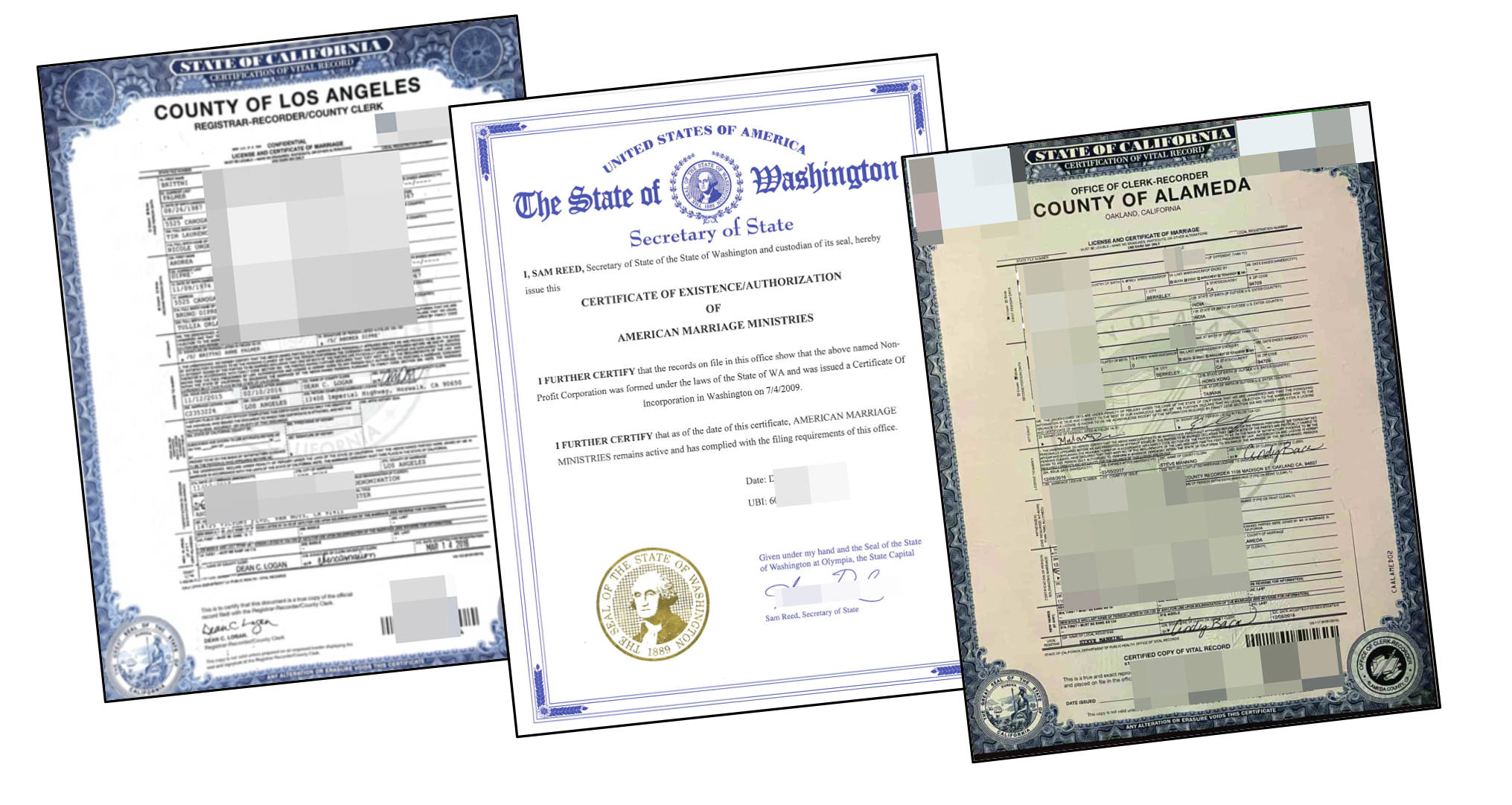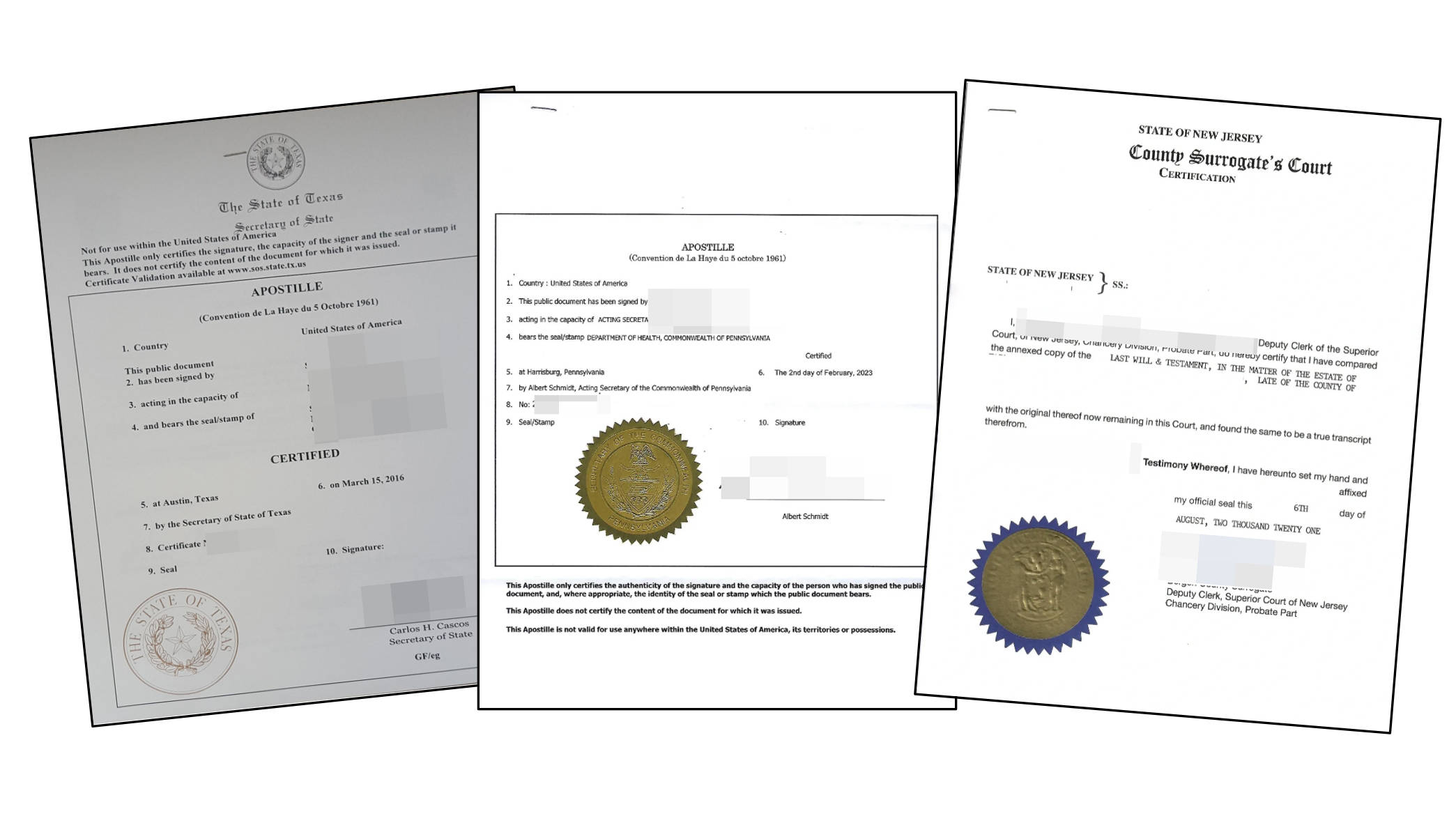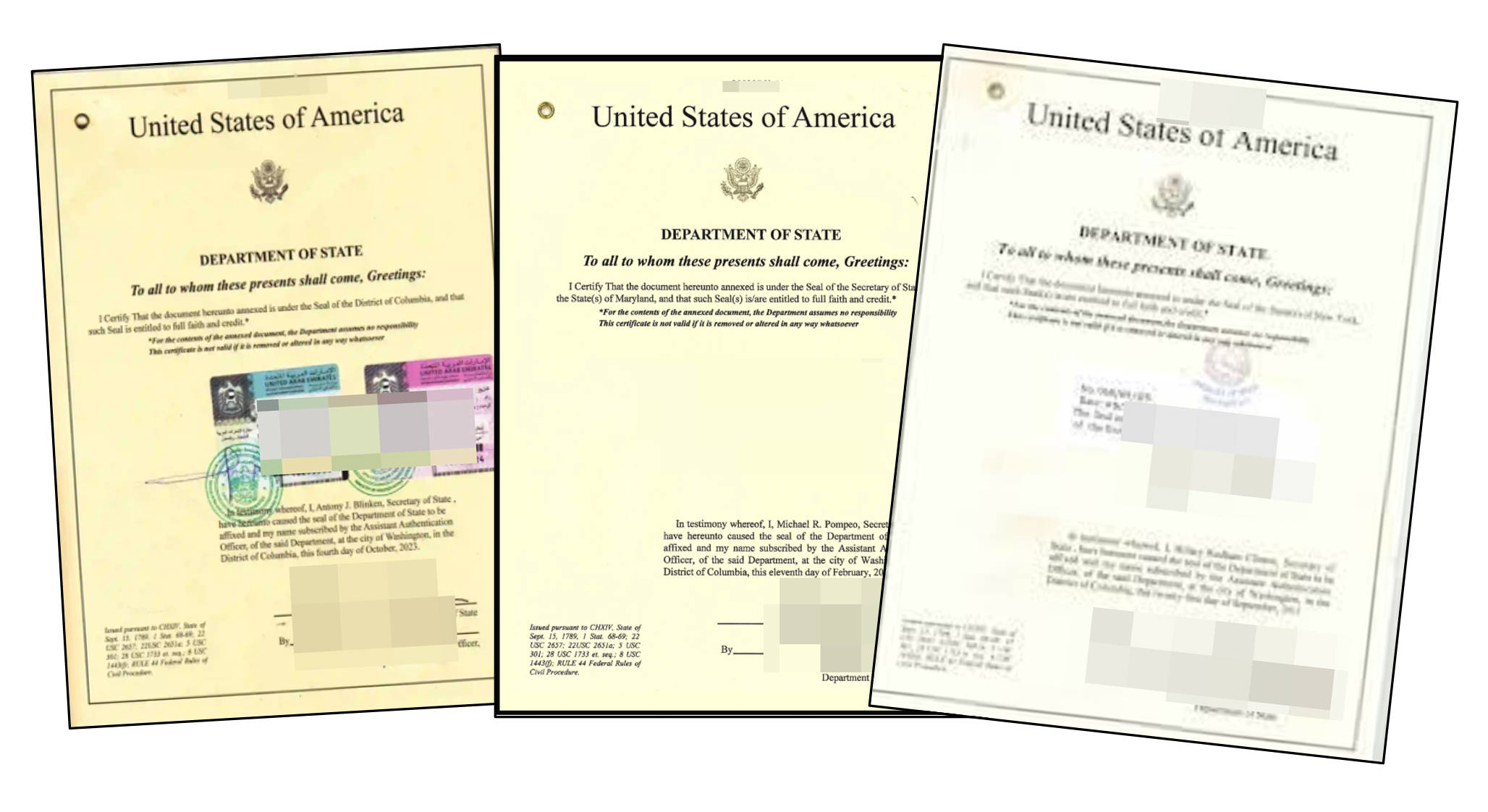US Marriage Certificate Hague certification, consulate certification

What is a Marriage Certificate in the United States?
When you and your partner marry in the United States, your vow of love is not only kept in each other’s hearts, but also officially recognized by the U.S. government in the form of a “Marriage Certificate.” This document is not only a symbol of the legality of your marriage but also a “key” for handling various matters abroad, such as household registration, immigration, children’s education, property distribution, and even tax issues. In other words, it serves as your legal “ID” in the world, ensuring your marriage is trusted and recognized internationally.
Example of a U.S. Marriage Certificate
Let’s imagine a very realistic scenario: Xiao Li and his wife Xiao Wang met while studying in the U.S. many years ago. After graduation, they decided to stay in the U.S. for work and officially registered their marriage at a City Clerk’s Office in New York City. There, they received a Marriage Certificate issued by the state of New York. This document serves as an important legal proof for the couple, confirming that their marriage is legal and protected under U.S. law.
Why do they need this U.S. Marriage Certificate? In fact, in the U.S., this certificate can be used for various purposes, such as applying for a green card for one spouse, enrolling in spouse health insurance, jointly purchasing property, opening a joint bank account, and more. From both a legal and practical perspective, this marriage certificate acts as the “ID” of their relationship.
The turning point came after they returned to China. They planned to settle there and wanted to buy a home or apply for a family reunion visa for the spouse, while also needing to handle some legal procedures related to their marriage within China. When dealing with foreign documents, Chinese authorities typically require international certification to ensure that the documents are reliable and recognized under Chinese law.
In the past, if Xiao Li wanted the U.S. marriage certificate to be recognized in China, he would first have to take it to the Secretary of State’s office in the U.S. for certification, then to the Chinese embassy or consulate in the U.S. for authentication, and only after returning to China could he use it. This process was quite complicated, not only time-consuming and labor-intensive, but also required handling a lot of cross-border mailing and paperwork, often taking several weeks or even months to complete.
However, with China’s accession to the “Hague Convention Abolishing the Requirement of Legalization for Foreign Public Documents” (commonly known as the Hague Apostille Convention) on March 8, 2023, and its official implementation in China on November 7, 2023, the process has become much simpler. The so-called “Hague Certification” (Apostille) is a simplified document authentication procedure recognized between the member countries of the convention. As long as the document issued by the U.S. carries the Apostille stamp, it will be recognized by Chinese authorities, without the need for the complicated consular authentication process.
In other words, Xiao Li can now delegate the task of applying for the Hague Apostille for his U.S. marriage certificate to the “Washington DC Notary Office.” The process is roughly as follows: First, the Washington DC Notary Office will help confirm whether his U.S. marriage certificate is the original or a certified copy issued by a government authority. Then, they will send the certificate to the appropriate U.S. authority (such as the state department or the U.S. Department of State, depending on the state or type of document) to affix the Apostille stamp. Once this is done, the Hague-certified U.S. marriage certificate can be directly used in China.
So, what exactly does this solve for Xiao Li and Xiao Wang? Previously, they would have had to spend a lot of time and effort going through the traditional consular dual authentication process. Now, they only need to complete the Hague Apostille certification once. This means that when they return to China, for example, to handle property registration at a real estate transaction center in cities like Beijing or Shanghai, they can simply present the Hague-certified U.S. marriage certificate. The relevant Chinese authorities will recognize their marriage as legal and valid, without the need for additional paperwork or extra trips.
Similarly, if they need to handle things like residence permits, family visas, children’s household registration, or other legal matters related to their marital status in China, the Hague-certified U.S. marriage certificate will serve as an appropriate and valid legal document. This greatly simplifies the process and saves both parties time and money.
In summary, this is a very practical and relatable case: A Chinese couple who registered their marriage in the U.S. can now, thanks to China’s accession to the Hague Apostille Convention, easily complete various legal procedures in China with just a Hague-certified U.S. marriage certificate obtained with the help of the Washington DC Notary Office. This makes managing a cross-border marriage much more convenient and efficient in real life.
By sharing this case, we aim to help you better understand the related processes and real-life scenarios. Please note: the company names and personal names mentioned in this explanation are purely fictional. Any resemblance to actual companies or individuals is purely coincidental. Our case is intended as reference material, designed to provide a framework for thinking and decision-making, so you can make more informed choices in your own situation. When applying the case information, please carefully consider your own circumstances and seek professional advice or further verification when necessary.
What is the Hague Apostille in the U.S.?
You might wonder, why do you need an “Apostille” if you already have a U.S. marriage certificate? When you plan to live, work, or immigrate abroad, it’s important to ensure that the document representing your marriage is accepted and recognized by other countries. The Hague Apostille is an “official stamp” that is recognized across many countries that are signatories to the Hague Convention. With this certification stamp, your U.S. marriage certificate will be directly recognized in other Hague member countries, eliminating the need for complicated second or third rounds of verification. This allows you and your partner to avoid the hassle of additional procedures, saving you time and effort in achieving your dream of living across borders.
What is U.S. Consular Authentication?
If your destination country is not a member of the Hague Convention or if that country has stricter document certification requirements, then “U.S. Consular Authentication” becomes an essential step. Through official endorsement by a U.S. consulate or embassy, your U.S. marriage certificate will be recognized as credible by authorities in non-Hague countries. In other words, it’s like dressing your marriage document, which is only valid in the U.S., in a “diplomatic suit,” allowing it to be treated with the same respect and authority in other countries.
Washington DC Notary Office provides agency services
However, many people might feel confused about these certification steps: What documents are needed? What processes do I have to follow? How can I avoid time and financial losses caused by information gaps? This is where the agency services of the Washington DC Notary Office become your professional guide. We are well-versed in the various certification processes and familiar with policy updates and changes, saving you from the complicated and lengthy steps of document preparation, submission, and communication. All you need to do is communicate with us, and you can relax at home while waiting for your Hague-certified U.S. marriage certificate to be delivered to you. From then on, whether you plan to live abroad, apply for a visa, immigrate, or handle other cross-border matters, your marriage document will have a solid international “ID” to support you.
Apostille Sample

Authentication Sample
